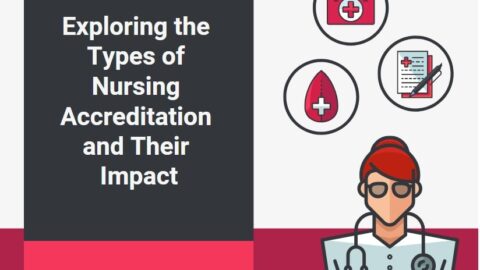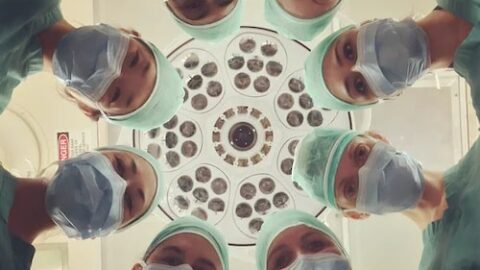9 Reasons Why You Should Pursue a Career in the Healthcare Sector
When choosing which career path to pursue, whether you are still in high school, college, or actually just finishing your undergraduate degree at university, it can sometimes be challenging and even overwhelming when faced with choosing where you want your professional career to go.
Table of Contents
However, if you are someone who is firmly committed to a career in the healthcare sector, you have come to the right place. Here, for your information and, of course, for your reading pleasure, are nine top reasons to pursue a career in the healthcare sector.
1. A Plethora of Areas of Specialization
Often, after you have been working in a particular industry, and more specifically, one company, for a number of years, it can seem as if there is no room for career progression, and unless you are prepared to change careers, you are simply faced with two different yet entirely clear options.
The first option is to leave the company you currently work for and apply for a similar job at a rival business, and the second is to simply abandon your dreams of career progression and instead be content where you currently are.
However, when you decide to pursue a career in the medical profession and healthcare sector, you are afforded a plethora of opportunities to either climb the proverbial ladder in one specialism or else divert entirely to another, still within the same framework. This way, you slowly and effectively build on not just your expertise and knowledge base but also retain your levels of respect afforded by your peers and superiors alike.
Below is just a small selection of the most enthralling and important specialisms a medical professional can enter into over time:
- Family medicine
Family medicine, instead of focusing on a particular area of the body, focuses on treating individual patients as a whole and providing comprehensive healthcare for all. Subspecialties of family medicine include pain medicine, adolescent medicine, sleep medicine, geriatric medicine, palliative medicine, and sports medicine.
- Ophthalmology
Essentially, medical professionals who specialize in ophthalmology focus on everything to do with the eyes. Subspecialties of ophthalmology include uveitis, glaucoma, ocular, orbit, reconstructive surgery, pediatric ophthalmology, anterior segment, and neuro-ophthalmology.
- Surgery
Surgeons are highly trained medical professionals who are able to provide a variety of surgeries that can save people’s lives and are well versed in intensive care, wound healing, physiology, and human anatomy. Subspecialties of surgery include thoracic surgery, pediatric orthopedics, spinal surgery, critical care surgery, neurological surgery, oral surgery, trauma surgery, plastic surgery, colon surgery, and pediatric surgery.
- Immunology
Medical professionals who have dedicated their working life to a specialism in immunology concern themselves with both adults and children who are suffering from diseases of the respiratory system and immune system. Aside from clinical care, immunologists also often move into education and research as well.
- Internal medicine
Doctors who work in internal medicine are usually referred to as internists and treat diseases and illnesses relating to the vascular systems of patients of all ages. Subspecialties of internal medicine include rheumatology, geriatric medicine, critical care medicine, sports medicine, pulmonary disease, oncology, gastroenterology, infectious diseases, nephrology, endocrinology, and transplant hepatology.
- Pathology
Medical specialists in pathology study the nature and causes of each and every disease. Subspecialties of pathology include microbiology, clinical pathology, chemical pathology, forensic pathology, immunopathology, and molecular pathology.
- Diagnostic radiology
Diagnostic radiologists are medical professionals who are thoroughly trained in the diagnosis of illnesses through sound waves, x-rays, and radioactive substances. Subspecialties of diagnostic radiology include chest radiology, neck and head radiology, pediatric radiology, cardiothoracic radiology, gastrointestinal radiology, neuroradiology, interventional radiology, musculoskeletal radiology, and nuclear radiology.
- Pediatrics
Pediatrics firmly concerns itself with the diagnosis, treatment, and medical care of children and infants. Subspecialties of pediatrics include pediatric rheumatology, pediatric cardiology, pediatric endocrinology, pediatric nephrology, pediatric gastroenterology, pediatric critical care medicine, and pediatric hematology-oncology.
- Urology
Urologists focus solely on the female and male urinary tracts, encompassing the urethra, kidneys, bladder, and ureters. Subspecialties of urology include male infertility, renal transplant, calculi, pediatric urology, neurology, and urologic oncology.
- Epidemiology
Epidemiologists study disease patterns, causes, and effects in populations. As a career, it offers intellectual challenge, societal impact, and plays a crucial role in public health decisions, including pandemics.
For those who are interested in exploring this field but aren’t ready to commit to a full Masters degree, a Graduate Certificate in Public Health with UTS Online could be a great starting point. This shorter course can provide a solid foundation in public health principles and can often be credited towards a Masters degree should you decide to continue your studies.
2. A Huge Selection of In-Demand Jobs
Another supreme benefit of working in the medical and healthcare sectors is the fact that somewhat, unfortunately, people are always going to be poor and need treatment.

The most in-demand areas of healthcare that are currently actively looking to grow and expand or else are struggling to cope with the strain of higher levels of admissions center around the following:
- Medical practice manager
- Laboratory technician
- Phlebotomist
- Licensed practice nurse
- Gynecology & obstetrics physician
- Dentist
- Cardiology physician
- Admissions coordinator
- Nursing home administrator
- Laboratory manager
- Dental assistant
- Medical office manager
- Clinical administrator
- Anesthesia technician
- Nursing assistant
3. Substantial Competitive Salaries
As is often the case with vocational professions such as those within the healthcare sector, the more academic qualifications you possess, and more specifically, the higher your degree in medicine, the larger potential for a substantial yearly salary.
There is obviously a wide range of different professions and career pathways within the medical industry, all naturally differing in terms of responsibilities and subsequent pay grades.
According to an in-depth report conducted and released by the United States Bureau of Labor Statistics, the following frontline careers in health care are the most highly paid of them all:
- Certified registered nurse anesthetist
Average wage of between $180,000 and $192,000 per year
- Neonatal nurse practitioner
Average wage of between $125,000 and $128,000 per year
- Cardiac nurse practitioner
Average wage of between $114,000 and $117,500 per year
- Orthopedic nurse practitioner
Average wage of between $113,000 and $116,000 per year
Average wage of between $112,500 and $116,000 per year
- Nursing home administrator
Average wage of between $118,000 and $121,000 per year
- Clinical manager
Average wage of between $102,000 and $105,000 per year
- Public health advisor
Average wage of between $97,000 and $121,000 per year
- Biostatistician
Average wage of between $78,000 and $96,000 per year
- Epidemiologist
Average wage of between $74,000 and $108,000 per year
4. Leadership Opportunities
Due to the simple fact that the healthcare sector encompasses such a wide area of social, economic, and world issues and is heavily involved in virtually every aspect of modern life, there are also a huge number of fantastically rewarding and admittedly equally as challenging available leadership opportunities.
If you are someone who is passionate about improving the way individual patients are treated and cared for, the efficiency of the service, and the impact on the accessibility of healthcare for patients, yet do not feel as if a career on the frontline, as it were, is for you, then there is an alternative.
Leaders and managers in healthcare and all aspects related to the medical professional are absolutely intrinsic to the smooth running of the industry, and furthermore, if you choose to embark upon an Executive Masters in Health Administration Canada, you will be fully equipped to make a real and tangible difference to the healthcare sector.
Arguably, the people who hold leadership positions within the medical sector are just as influential as those medical professionals such as doctors and nurses who work directly in clinical care.
5. Healthcare is an Incredibly Respectful Profession
The fact of the matter is, even though it may seem harsh and possibly even slightly unkind to say, a large number of people in this country and overseas do not return after a hard day at work full of pride and purpose in what they have achieved.
For some people, this is simply an irrelevance, and more importantly, and perhaps enviably, they do not see work as anything other than a means to an end goal of being able to afford to enjoy life and provide for themselves and their family.
However, for people who feel as if they need more meaning and weight to their profession, a career in medicine and healthcare is the absolute pinnacle of a job that not only gives you a sense of self-respect but is respected by other people as well.
6. You Can Work Anywhere; Quite Literally!
If traveling the world is something that is extremely dear to you, and you often suffer from a niggling case of ‘itchy feet’, then this is another deep-seated reason why the pursuit of a medical career is certainly something you should consider.
If this is something you are thinking about, either now or in the future, and you are interested in learning a little more, then the following guide should serve to help:
- Engage in thorough research
Regarding the particular country you are thinking of working in, it is incredibly crucial to engage in as much background research into healthcare, medicine, and nursing over there as you can. This essentially will serve to minimize your risk of encountering problems once you start.
- Language & qualifications
Not only do you need to ensure that you possess all the necessary qualifications to work professionally in your country of choice, but it is also to ensure that you are at least confident in the basics of the language before you leave. Everyone knows that the best way to learn a language is to immerse yourself in the local community, but if you intend on starting work straight away, this is obviously not an option.
- Join a nursing union
The importance of joining an international nursing union before you leave the country can simply never be understated, and it is even more recommended than joining a nursing union in your own country.
7. Your Working Hours Differ Greatly from the ‘Norm’
Some people enjoy the routine and the security provided by working a nine to five job role five days a week and having their weekends to themselves. Often, these types of jobs come with a sense of finality when an employee proverbially clocks out for the day, and again, this is acceptable and sometimes even desired for many people.
However, another exceedingly beneficial aspect of dedicating your professional working life to the healthcare profession is that your working shift patterns and working hours are not only incredibly varied but also flexible.
Furthermore, some medical professionals are even fortunate enough to entirely choose the hours and days that they work, which adds another level of freedom to the role.
8. Working in Healthcare is Good for Your Own Mental Health
Ever since the outbreak of the worldwide coronavirus pandemic over two-and-a-half years ago now, the issue and subject of self-care and protecting and nurturing your own mental health has finally, and not before time, been brought to the proverbial forefront.
Working as a nurse, doctor, or other medical professional will not only mean you are making a huge difference in the lives and, pertinently, the level of physical and mental health of a multitude of different people on a regular basis, but it will also do wonders for your own emotional health and wellbeing.
Just a few ways in which a medical career benefits your levels of mental health include, but are categorically in no way limited to, the following:
- Immersing yourself in this type of work forces you to live in the moment
- Seeing people in the different aspects of the healthcare system provides perspective
- A sense of pride and accomplishment in your work
- Physical exercise promotes mental health, and you will certainly be active in this career
9. Healthcare is Not Just a Profession!
Finally, but perhaps most importantly of all, the fundamental, strongest reason to enter the world of healthcare as a medical professional is that you will spend all day, every day, making a tangible and incredibly influential difference in people’s lives.
A person who chooses a career in medicine is, by their fundamental choice to enter the profession, undoubtedly a selfless, compassionate, empathic, and giving person, and the world simply would not function without people like them.

Business Developmeny Manager at PAS InfoCom Technologies Ltd. Experienced in project management with a demonstrated history of working in the information technology and services industry.










